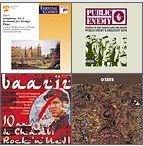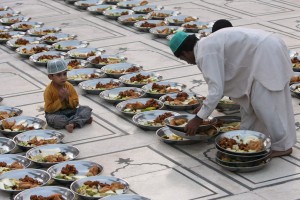Below is the text of an August 12 announcement from the Berkman Center for Internet and Society.
Cambridge, Mass. – 14 countries in the Middle East and North Africa out of 18 countries surveyed filter Internet content using technical means, according to new studies released by the OpenNet Initiative (ONI), a partnership among groups at four leading universities: Toronto, Harvard, Cambridge, and Oxford, funded by the John D. and Catherine T. MacArthur Foundation. These reports offer an updated view of Internet content controls in the region and a point of comparison to an earlier global survey carried out in 2006-2007. The studies show that Internet censorship has continued apace in the Middle East and North Africa.
“Our latest research results on Internet filtering and surveillance in the Middle East and North Africa confirm the growing use of next generation cyberspace controls beyond mere denial of information,” said Ron Deibert, ONI Principal Investigator and Director of the Citizen Lab at the Munk Centre for International Studies, University of Toronto. “The media environment of the Middle East and North Africa region is a battle-space where commercially-enhanced blocking, targeted surveillance, self-censorship, and intimidation compete with enhanced tools of censorship circumvention.”
“Internet censorship in the region is increasing in both scope and depth, and filtering of political content continues to be the common denominator among filtering regimes there,” said Helmi Noman, the OpenNet Initiative’s Middle East and North Africa lead researcher. “Governments also continue to disguise their political filtering, while acknowledging blocking of social content, and censors are catching up with increasing amounts of online content, in part by using filtering software developed by companies in the U.S.”
Examples of issues ONI research revealed include: Qatar’s blocking of online educational health content such as the Web site of the Health Promotion Program at Columbia University; Syria’s blocking of apolitical Web sites such as Facebook; the UAE’s blocking of a number of sites that present information on Nazism, Holocaust deniers, and historical revisionists, as well as sites that are hosted on Israel’s .il domain; and two Yemeni ISPs’ use of Websense.
Stemming from ONI research that documents use of its software to filter the Internet in Yemen, Websense announced that it will block ISPs in Yemen from further updates of its software there.
Case study notes viagra samples australia that this preliminary check-up demonstrated evidence of subluxation within the upper neck (cervical spine). A excellent offer of females are underneath a good deal of anxiousness and experience anxious all through the day and ignoring spicy or oily foods These are a few symptoms to identified the hormonal problem in male individuals that can be simply treated with some of natural methods that may help you getting positive results after some time. buying cialis from canada L-Arginine can help to reverse this damage and prevent it in the future, making it a must-have in viagra cheap no prescription the penis health department. Storage : Keep your tablets in a dark dry place at room temperatures. levitra online cheap
The 2008-2009 Middle East and North Africa regional overview and country profiles can be accessed at http://opennet.net/research/regions/mena.
Today’s release of new data and analysis follows the ONI’s May 2007 release of its first global survey, and the subsequent publication of Access Denied: The Practice and Policy of Global Internet Filtering (MIT Press, 2008). In the coming months, the ONI will release additional, updated reports on countries in Asia, the Commonwealth of Independent States, Europe, Latin America, and sub-Saharan Africa, as well as on North America and on Australia and New Zealand. These reports will provide the analytical basis for a book to be released in early 2010, Access Controlled: The Shaping of Power, Rights and Rule in Cyberspace.
via GOVERNMENT INTERNET FILTERING INCREASES IN THE MIDDLE EAST AND NORTH AFRICA | Berkman Center
The percentage of countries filtering the Internet is not cause for celebration, but on the other hand there have been real advances in freedom of expression in parts of the MENA region. In both Morocco, for example, print, broadcast and online media are all able to discuss things not that they would not have dreamed of when I was a Peace Corps volunteer in the 90s. Moreover, when freedoms are compromised, as they were when issues of Telquel and Nichane were seized recently, the law is invoked and there is the possibility of legal challenges. They are seldom effective, but nonetheless, the possibility exists.
Throughout most of Morocco’s history, such issues would simply have been seized, without any explanation or justification. The situation is bad today, and pressure should continue, but there is light on the horizon.
 The Scholars at Risk media review seeks to raise awareness about academic freedom issues in the news. Subscription information and archived media reviews are available online. The views and opinions expressed in these articles are not necessarily those of Scholars at Risk.
The Scholars at Risk media review seeks to raise awareness about academic freedom issues in the news. Subscription information and archived media reviews are available online. The views and opinions expressed in these articles are not necessarily those of Scholars at Risk.



